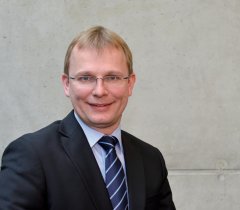
22 November 2022 (14.00h – 17.30h CET)
Online
Free of charge
Certificate available upon completion
Language: English
Duration: 4 teaching units
Course Materials:
The record of the first part of the workshop
The record of the second part of the workshop
Workshop Description
Higher Education Institutions (HEI) are facing different challenges these days: The sector is becoming more competitive and the education profile need to become more dynamic: the amount of knowledge is ever increasing and knowledge is out-dating faster than ever as new knowledge is emerging and the overall body of knowledge grows in almost every discipline. As a consequence, the education system in HEI needs to become more agile and more modular, in order to be able to adapt to these challenges.
Education programs are carefully crafted in a manual but unstructured way from different stakeholders and brought to life by yet different roles, supported by a number of processes, methods and tools.
The workshop introduces a way to use semantic structures that support the creation of connected, modular education items which represent a Pre-built information spaces for learning environments (PreBIS-LE). We will introduce a concept for a simple and universal way to structure learning outcomes and reflect the model by using practical examples from different application domains. While doing so, we are able to create a more structured form of the essence of educational program that act like a scaffolding for the creation, communication and execution of those programs. This increased transparency supports the understanding for human actors in different roles and the formalization can also be used to build supporting IT-systems that enable a dynamic presentation and exploration of different aspects of educational programs.
Participants of the workshop will obtain a basic understanding of the concept of Pre-built information spaces for learning environments, get the opportunity to develop an understanding using small examples from their own educational domain and have the chance to enter in the conversation of how to develop the concept further.
The structure of the event:
- Introduction on the current situation in HEI with respect to the current dynamic environments, highlighting the viewpoints of different stakeholders: course program creators, lecturers, students, program reviewers
- Interactive session: Warmup by reflecting the situation of the participants
- Introduction of Pre-built information spaces for learning environments (PreBIS-LE) and Hierarchical Skill Matrices (HSM) as a way to scaffold the core structure of education programs
- Interactive session: Application of the concepts for different educational domains
- Basics of semantic technologies and its applications for a non-technical audience in order to demonstrate the usefulness for a technology support for the scaffolded model of an education program
- Summary, Reflection and Wrap up, Take Away and preparations for the spring-session in 2023
Additional information can be accessed through the conference paper: https://www.researchgate.net/publication/360261153_Agility_and_Semantic_Structures_to_Scaffold_Modern_Academic_Education_Supporting_the_Digital_Transformation_in_HEI

Karsten Böhm is a professor on Business Informatics at the University of Applied Sciences in Kufstein Tirol, Austria. He studied Computer Science with a minor in Linguistics and a specialization in automatic text processing. Karsten had been the director of studies of several academic programs in Kufstein for more than a decade and serves as an advisor for accreditation agencies in Austria and Germany. In his research activities he had been involved in European, national and regional collaborative research projects, where he served as researcher and as technical manager. His research is rooted in the field of IT-supported Knowledge Management with different fields of application, such as Innovation Management and knowledge intensive process management. His recent research focus is the use of semantic technologies and agile methods in higher education institutions.
More information can be found on LinkedIn https://www.linkedin.com/in/karstenboehm/
ResearchGate https://www.researchgate.net/profile/Karsten-Boehm

